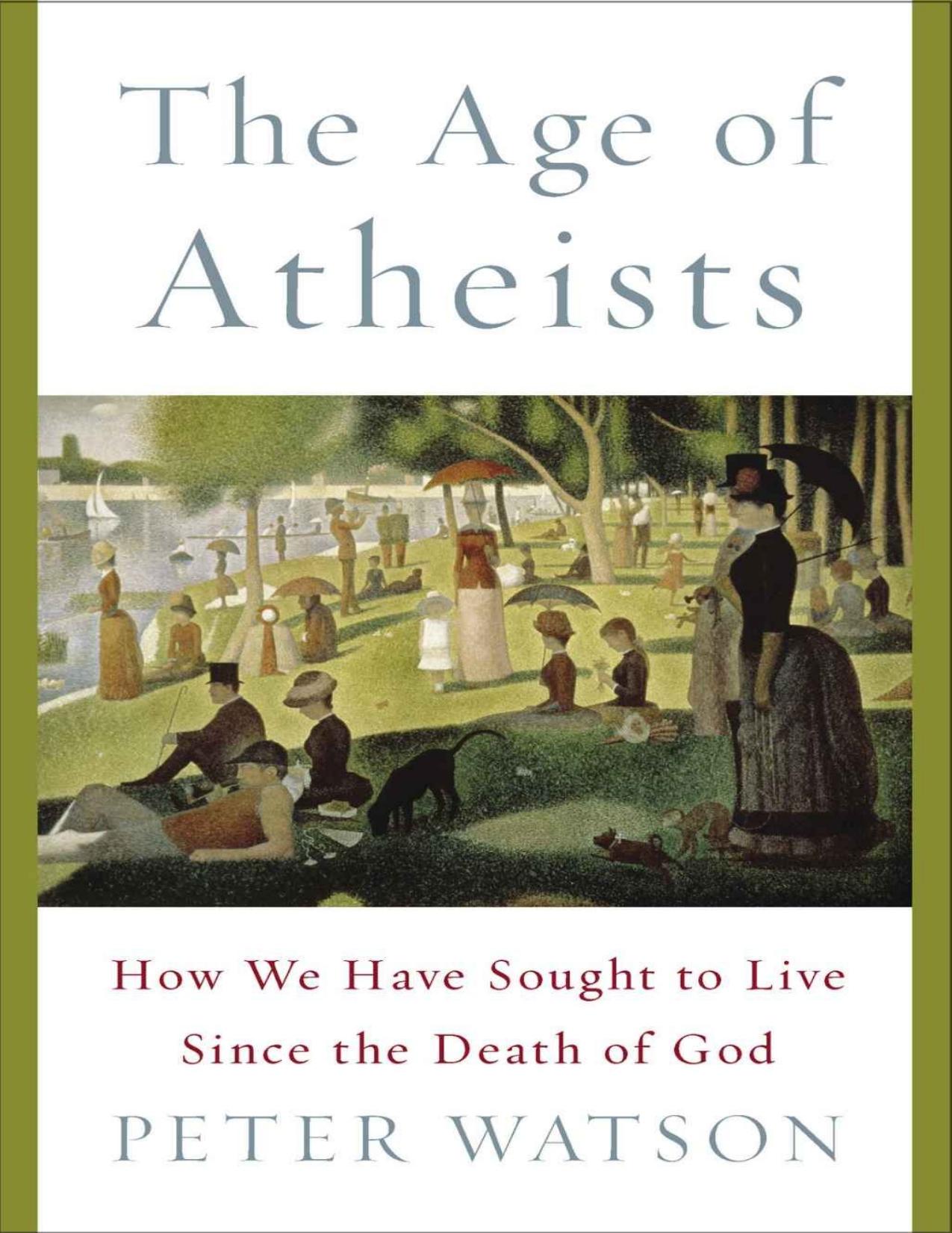The Age of Atheists: How We Have Sought to Live Since the Death of God by Watson Peter

Author:Watson, Peter [Watson, Peter]
Language: eng
Format: epub, mobi, pdf
Publisher: Simon & Schuster
Published: 2014-02-18T00:00:00+00:00
THE “UNDENIABLE HARDNESS” OF THE WORLD
The theologian who had the greatest ambitions, after Rosenberg, was Jakob Wilhelm Hauer (1881–1962), founder of the German Faith Movement. He had millions of followers, according to the historian and anthropologist Karla Poewe, including luminaries such as Mathilde Ludendorff, Dietrich Klagges, the best-selling novelist Hans Grimm and the popular writer on anthropology H. F. K. Günther.25
According to some scholars, Hauer had it in mind to create a political religion in that, like Rosenberg, he wanted his ideas to be the ideological basis for National Socialism—though he never had the ear of senior Nazi figures as the latter did. Much impressed by Rudolf Steiner and his anthroposophy movement, which he thought heralded a new era of spiritual creativity, Hauer inhabited the same intellectual and cultural milieu as Rosenberg. He held mystic notions of the Volk and medievalism, and of the Indo-Germanic tradition that saw a line of influence stretching from Buddhism and Hinduism through Greece to medieval Germany, then on into the Nordic realm as far as the Eddas and sagas and the Icelandic myths.
In addition, he had three interdependent concepts: being “grasped” by the sacred, being led by a powerful personality and understanding the needs of the time. These should come together, he thought, or hoped, in a religious/political genius who related instinctively to his time and place—that is, to an ethnically specific predicament. To this was added a social Darwinism (and a Nietzscheanism) in which the “undeniable hardness” of the world was to be appreciated—the need for conflict and its associated sense of heroism “with which we can enjoy life’s battle, where we win and lose, have joy and suffering, pain and delight, the will to live and preparedness to die.” By means of a religion of the blood and soil (a wearily familiar German concept), a Volk could not renew itself through a Christian idea of salvation. Rather, it must realize its renewal as coming from its own psychological center.26
Apart from the notion that only a politico-religious leader could help Germans find the truth, Hauer laid down several specific aspects of “concrete content” for his German faith: namely, that the great figures of German history were prophets, that the German domain was where the revelations took place, that God favored the Germans and the German way, that the German will was a specific form of revealed divinity, that battle and tragedy were the eternal law of human beings, making the German homeland “nearer to heaven than any paradise.” “Obedience to the leader is the highest fortune and the most blissful peace.”27 His faith, essentially pagan, evolved its own symbols, and its main cohesive force was an unremitting war of attrition against Christianity.28 Hauer wanted to destroy what he called “secularized Christianity” and replace it with faith in the Third Reich.
Around him were a number of other neo-pagan sects, including Mathilde Ludendorff’s Society for God Knowledge, an extreme form of nationalism, whose aim was the “immortality of the race or nation” via sticking closely
Download
The Age of Atheists: How We Have Sought to Live Since the Death of God by Watson Peter.mobi
The Age of Atheists: How We Have Sought to Live Since the Death of God by Watson Peter.pdf
This site does not store any files on its server. We only index and link to content provided by other sites. Please contact the content providers to delete copyright contents if any and email us, we'll remove relevant links or contents immediately.
From Bacteria to Bach and Back by Daniel C. Dennett(2149)
The God delusion by Richard Dawkins(1850)
Boy Erased by Garrard Conley(1411)
THE SELFISH GENE by Richard Dawkins(1322)
The Falls by Unknown(1142)
the god delusion by richard dawkins(1087)
Christopher Hitchens by The Portable Atheist: Essential Readings for the Nonbeliever(1071)
THE GOD DELUSION by Richard Dawkins(1056)
Drunk with Blood: God's Killings in the Bible by Steve Wells(1045)
Triumvirate of Rationalism: Thomas Paine, Thomas Jefferson, and George Orwell by Christopher Hitchens(1034)
Outgrowing God by Dawkins Richard(1032)
About the Holy Bible by Robert G. Ingersoll(1023)
Atheism: A Very Short Introduction by Julian Baggini(995)
The Rage Against God by Peter Hitchens(990)
The Atheist Muslim by Ali A. Rizvi(987)
Why I Am Not a Christian and Other Essays by Bertrand Russell(938)
Battling the Gods by Tim Whitmarsh(930)
Emancipation of a Black Atheist by D. K. Evans(922)
God Is Not Great by Christopher Hitchens(915)
